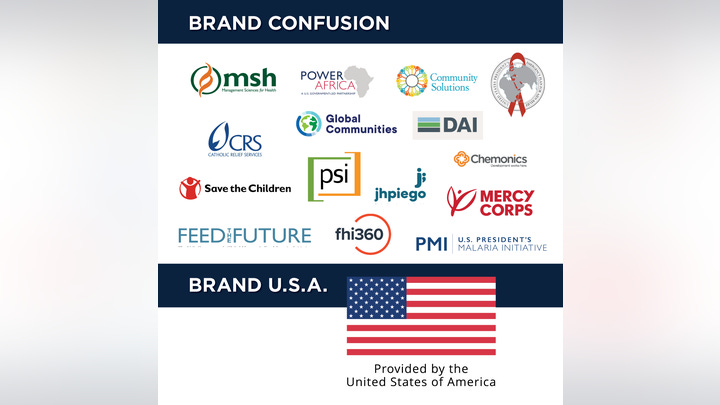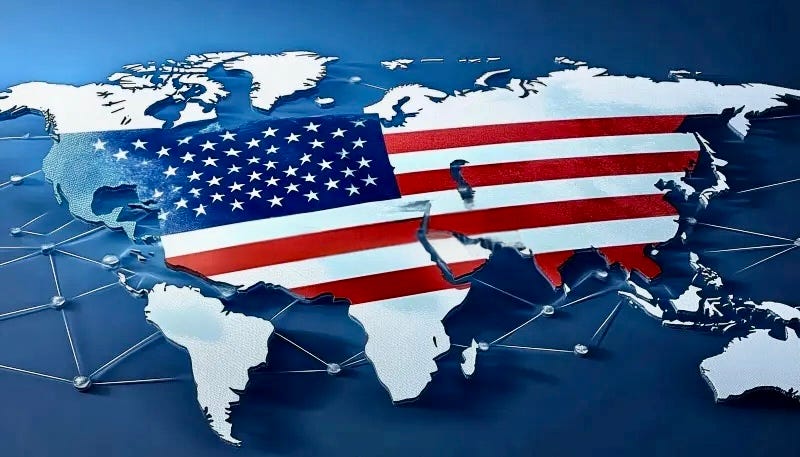Raising the Flag Abroad: The United States Takes Ownership of its Identity Through Liberty and Generosity
No longer fragmented or anonymous, America’s global efforts now speak with a single voice that reflects the nation’s character, its commitment to liberty, and its tradition of generosity.
Liberty is the foundation of American strength. It is the force that shaped our founding, the principle that defines our character, and the reason the United States has become the most powerful and benevolent nation in history. Our freedom has not only given us prosperity at home, it has enabled us to extend help to others far beyond our shores.
Where disaster strikes, where hope fades, where others hesitate, America has stepped in—not for conquest, but for stability, for peace, and for the preservation of human dignity. That kind of reach doesn’t come from arrogance. It comes from freedom rightly ordered, prosperity rightly used, and strength rightly exercised.
What makes that strength possible is not just wealth or force. It is the moral courage of free men and women who believe that what they have is worth defending, and that what they stand for is worth sharing. As President Reagan once reminded the country,
“…here, in this land, we unleashed the energy and individual genius of man to a greater extent than has ever been done before. Freedom and the dignity of the individual have been more available and assured here than in any other place on Earth. The price for this freedom at times has been high, but we have never been unwilling to pay that price.”
That quote is not just history—it’s identity. It defines the very reason this nation has always been willing to step forward when others cannot or will not.
This is what makes the State Department’s rebrand so timely and so important. The United States is making itself known again—not with bluster, and not with ambiguity, but with purpose. The department has begun retiring the patchwork of logos, programs, and independently branded initiatives that have long operated under the American flag in name but rarely in presentation.
For years, much of our foreign assistance and diplomacy was carried out by entities that built their own identities, often distancing themselves from the country that made their work possible. As a result, the United States funded the effort, provided the personnel, and accepted the risk, but often received little recognition for the impact. That is beginning to change. Under the new structure, America will no longer hide behind agency branding or neutral packaging. Our presence abroad will reflect the nation behind it clearly, consistently, and without hesitation.
This change isn’t cosmetic. It’s rooted in a shift toward clarity and accountability. Every U.S. embassy, mission, and foreign assistance program will now carry a single, unmistakable identity: the American flag. Not an abstract symbol nor a stylized logo. The actual flag of the United States. For the first time in modern diplomatic history, the work our country does around the world will be visibly tied to the people and principles behind it.
The redesign is only one part of a broader reform. Within the State Department itself, dozens of overlapping offices and redundant initiatives are being consolidated. Personnel are being reassigned with an eye toward mission clarity rather than bureaucratic permanence. Field operations are being given more autonomy to make decisions on the ground, while Washington takes on a more streamlined role. The result is a leaner, more focused structure, where diplomatic action is tied directly to the national interest, and not to the survival of independent bureaucracies.

One of the most significant changes involves the integration of USAID under the direct authority of the State Department. For years, USAID functioned as a parallel institution, often setting its own priorities and cultivating a global identity that stood apart from the nation it represented. While the work it performed was often valuable, the structure allowed American generosity to appear disconnected from its source. That separation is coming to a close.
Foreign assistance will continue, and projects will move forward, but they will now do so under the clear and unified banner of the United States. This isn’t a rejection of humanitarian work, but a reaffirmation that such efforts are a direct reflection of American leadership, grounded in principle and carried out with purpose.
At the heart of this shift is a renewed confidence in what this country represents. Liberty is what made America what it is. It stands as the foundation of our institutions, the engine of our economy, and the reason our influence carries weight beyond our borders. That belief in ordered freedom, rooted in the dignity of the individual and the rights of self-governed people, remains our most valuable export. And that belief should never be hidden.

America’s reach abroad isn’t secured by weapons alone. It’s sustained by the quiet strength of a people who believe that peace is worth striving for, that sacrifice has meaning, and that history demands courage from those who are free. That is the spirit found not just in battlefields, but in boardrooms, classrooms, courthouses, and farm fields. It’s the same spirit that has carried messages under artillery fire, built cities from wilderness, and carved principle into the stones of a Constitution meant to last.
Independence Day, celebrated by Americans across the country, is more than a memory of victory. It is a living reminder of what this country has fought for and what it continues to stand for. Around the world, when others see the American flag, they should understand what it means. Not simply that assistance has arrived, but that it comes from a people who chose to give. Not simply that diplomats are present, but that they speak for a nation that values liberty and expects accountability. That message has been diluted for too long. This reorganization, and the visual clarity that comes with it, is a step toward restoring that message to its proper place.

This isn’t about arrogance. It is about identity. We are not hiding our name. We aren’t asking others to guess where the help came from or what values stand behind it. The United States is stepping forward and doing so openly. That isn’t something to fear or apologize for. It’s something to honor.
This Fourth of July, as we raise the flag at home, we also raise it abroad. On every embassy, on every mission, on every shipment, and on every message we send to the world.
The American people have every reason to be proud of that.






